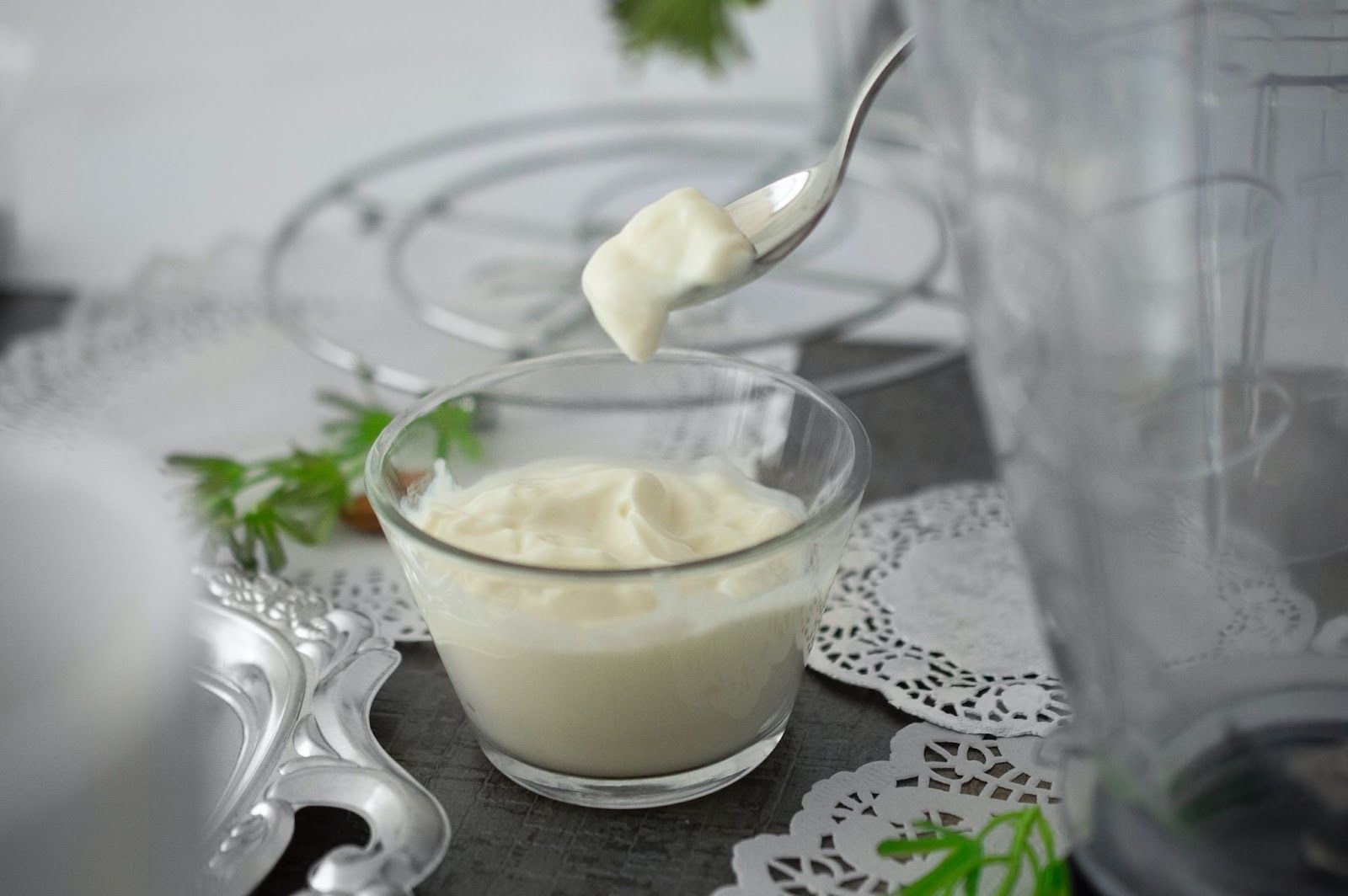Wanting to share your sweet treat with your pup? Can dogs have vanilla yogurt? Is it safe for dogs to eat vanilla yogurt? Let’s talk about whether or not yogurt is healthy or safe for your dog to eat.

Balancing Treats and Technology for Your Dog’s Best Life
When it comes to giving your pup the best life, it's all about the right balance between treats, nutrition, and safety. Just as you carefully choose healthy snacks like low-fat yogurt for your furry friend, consider the Fi Dog Collar for their overall well-being. This smart collar does more than track your dog's activity; its geofencing feature provides peace of mind by alerting you when your dog leaves a designated safe area.
Paired with the Fi app, you can monitor their location, activity levels, and sleep patterns in real time. Ensure your dog gets the perfect balance of nutrition, exercise, and safety. Get the Fi Dog Collar today and stay one step ahead in your pet parenting journey.
What Kind of Yogurt Can I Give My Dog?
Is your dog getting a little bored of the “same old, same old” when it comes to treats? Or maybe you’re just wanting to give something extra special to your extra special furry friend.
We all want to treat our dogs with the best because they bring us so much joy. And in our human world, we treat ourselves with all of the most delicious and decadent foods. But if we’re going to treat our pups with something special, we should also consider their health. What’s safe, and what’s not. And what’s going to be the best treat for their overall health and wellbeing.
Before we jump into vanilla yogurt specifically, let’s talk dairy. Is dairy safe or healthy for our dogs? What kinds of dairy can our dogs eat? And how much should they really have?
Is Dairy Bad for Dogs?
Dairy products are such a big part of the typical American diet. If you eat dairy, you probably have milk, yogurt, sour cream, ice cream, cheese, and much more in your fridge. But which of these are safe to give our pups?
In general, dairy isn’t bad or toxic for dogs. However—just like humans—some dogs can be lactose intolerant. So if you’re going to give your dog any dairy, please try just a small bit at first to see how they react. And if your dog doesn’t have any adverse effects, then dairy is just fine—in small quantities. Especially because dairy does tend to have a high fat and calorie content. And many dairy products contain a large amount of sugar.
As it goes with all treats for our pups, please do everything in moderation. And keep in mind that a dog's treats and snacks should only make up 10% of their overall diet. The other 90% should always come from nutritionally-balanced dog food. Even if we like to overindulge sometimes, it’s really not helping your dog to let them overindulge too.

Is it OK to Give Dogs Yogurt?
If you’re wanting to feed dairy to your pup, yogurt is definitely the healthiest option. “Yogurt is high in calcium and protein. It also can act as a probiotic, which can be good for the digestive system.” But it’s best to pick plain, low or non-fat yogurt, or Greek yogurt that has no added sweeteners.
Is Vanilla Flavored Yogurt OK for dogs?
If your dog ate a small amount of vanilla yogurt, they will typically be fine. But remember that any kind of flavored yogurt is going to have more sugar in it. And this could lead to stomach upset for your sweet pup—meaning gas, diarrhea, and vomiting.
Plus, feeding your dog sugary foods, or foods with high fat contents over and over can lead to obesity, pancreatitis, and many other problematic health issues. And please watch out for artificial sweeteners like xylitol!
Is Xylitol in Vanilla Yogurt?
Double check the ingredients of your yogurt, or any other food products you are considering sharing with your dog. Some vanilla yogurts may contain xylitol. And it’s important to make sure there is no xylitol in the ingredients list because it is very poisonous to dogs. Xylitol is a natural sugar substitute that is healthy for humans, but harmful to dogs. So please be aware of the ingredients, and be cautious before sharing any human foods with your precious pooch.

DIY Frozen Popsicles for Dogs
But don’t let the worries get in the way of you living your life, or giving your dog their best life possible. As long as your dog isn’t lactose intolerant, there’s no xylitol in the yogurt, and you choose a low or non-fat plain yogurt or Greek yogurt… you should be totally fine to use it as a treat—in small amounts, and on occasion.
There are tons of fun DIY frozen treats you can find online to make at home for your furry best friend.
Frozen Yogurt and Fruit
Use plain, unsweetened yogurt, plus some dog-friendly fruit like watermelon, cantaloupe, blueberries, or bananas. Throw it all in a blender and mix it together. Then pour that mixture into an ice tray or popsicle tray, and freeze it!
If you’re feeling really creative, you can even use something unique and tasty for the “stick” of the popsicle like a dog treat or bully stick.
If you don’t want something frozen solid, you can just take your fruit and yogurt mixture, and refrigerate it like a smoothie. Then pour it over your dog’s normal food as a special treat later.
Be creative, be unique, but whatever you do, be safe with your dog’s food choices to keep your pup as healthy as can be.
Conclusion
Providing your dog with the best life involves balancing indulgent treats with nutrition and safety. While yogurt can be a healthy and occasional snack, it's essential to ensure that it's low-fat and free from harmful ingredients like xylitol. Always prioritize your pet's health by offering them treats in moderation and focusing on their main diet, which should consist of nutritionally balanced dog food.
Moreover, consider utilizing technology to keep your dog safe and healthy. The Fi Dog Collar is a remarkable tool for tracking your dog's activity, location, and sleep patterns. Its geofencing feature alerts you if your pet leaves a designated area, giving you peace of mind and ensuring your furry friend is always within reach.
By making conscious choices about your dog's treats and using innovative tools like the Fi Dog Collar, you can provide them with a happy, healthy, and safe life.
Interested in more articles about Can Dogs Eat?





For more helpful articles about pet-parenting tips, check out the Off Leash blog at TryFi.com.
Want to know more about TryFi.com? The Fi Dog Collar is a GPS tracking collar that not only keeps track of your dog’s location, activity levels, and sleep patterns, but it also alerts you if your dog escapes your backyard. This is the fastest way to find your dog after an escape. Try the Fi Dog Collar today!


